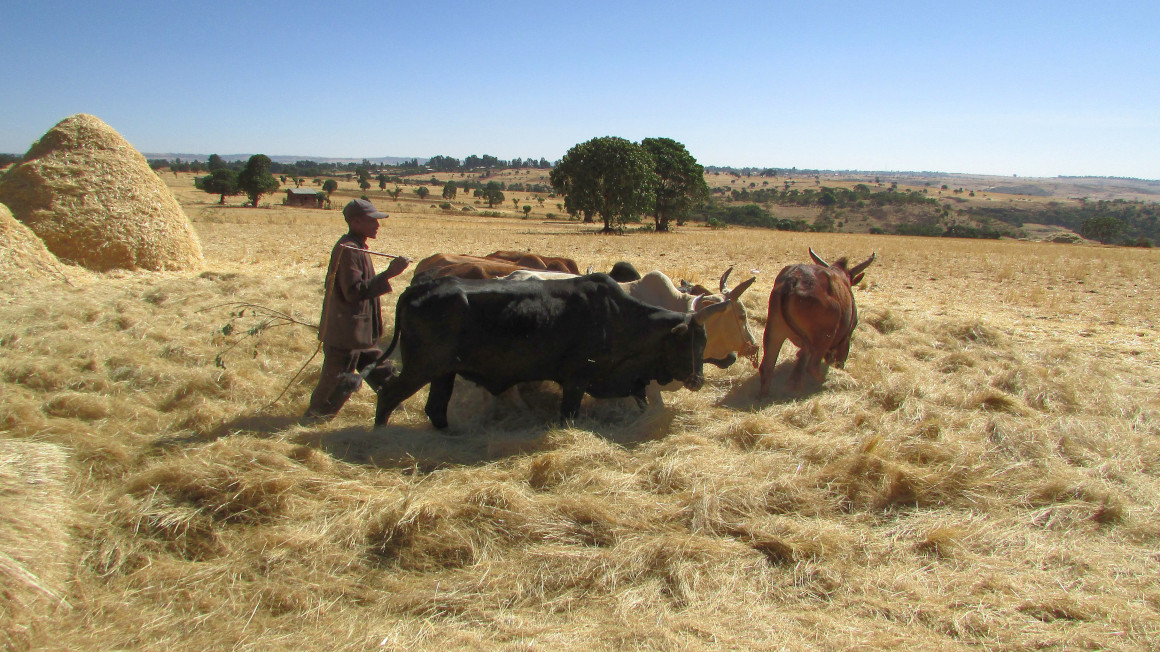How sustainable meat consumption can succeed
To secure the world's food supply, industrialised countries would not have to give up meat completely, but drastically reduce their consumption - according to an overview study by researchers at the University of Bonn.

Even though more and more people are adopting a vegetarian or even vegan diet, for many, meat products are still an integral part of their daily diet. In the EU alone, per capita consumption is around 80 kilograms of meat per year. For a long time now, it has not only been environmental organizations that have been campaigning for a reduction in meat consumption and pointing out the consequences of animal husbandry. Numerous studies have also established that eating less meat is not only healthy, but also sustainable.
Significantly reduce meat consumption
"If all people consumed as much meat as Europeans or North Americans, we would fall far short of climate targets, and many ecosystems would collapse," explains Matin Qaim of the Center for Development Research (ZEF) at the University of Bonn. Together with his team, the agricultural economist evaluated the current state of research on various aspects of meat consumption in a study reported in the journal Annual Review of Resource Economics. The conclusion: meat consumption in industrialized countries needs to be reduced by 75% - "ideally to 20 kilograms or less per year," says Qaim. "The war in Ukraine and the resulting shortages for grain on the world market also show very clearly that less grain should be fed to animals to ensure global nutrition." Currently, about half of the world's grain production ends up in the feed trough.
The Bonn researchers show how the keeping of farm animals such as cattle damages the environment and climate. For example, ruminants produce methane, which accelerates global warming. In addition, animals convert only a portion of the calories they are fed into meat. Accordingly, to feed the same number of people, more land would be needed for meat, which in turn would put a strain on ecosystems because less space would be left for natural species conservation. The study also refers to the health consequences of excessive meat consumption.
Eating meat in small quantities is acceptable
According to the study, however, an exclusively vegetarian or vegan diet is not a solution to the global food problem. Eating meat in small quantities can certainly be sustainable, they say. The researchers point to countries such as Ethiopia, where nutrient- and protein-rich foods such as legumes and vegetables either cannot be grown or can only be grown at certain times. "In such cases, animals are often central to a healthy diet," points out Qaim's colleague and co-author Martin Parlasca. "For many people, they are also an important source of income." According to the researchers, gentle grazing therefore makes perfect sense and is also justifiable from an environmental point of view.
Higher taxes on animal foods reasonable
Qaim's team also clarifies that it is not the "poorer countries that are the problem," but the rich industrialized countries where too much meat is consumed. According to the report, meat consumption is highest in North America and Australia. "However, meat has a high environmental cost that is not reflected in current prices. It would make perfect sense and be fair to make consumers pay more of these costs," Qaim said. In addition to higher taxes on animal-based foods, the authors recommend that the topic of "sustainable consumption" be integrated into school lessons and also given greater consideration in the training of future teachers. "We need to become more sensitive to the global impact of our choices," Qaim stresses. "This applies not only to food, but also to the T-shirt we buy at the discount store to wear for a single evening at a party."
bb


